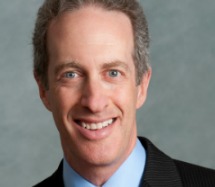What are you going to do with a Religion Major?
Our students go on to pursue careers in a variety of fields. Check this page often for more updates and featured alumni. More links to specific career fields coming soon.
Alumni
-
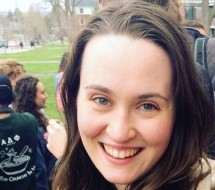
Hannah Wolfe Eisner '17
Social Studies Teacher
Read MoreHannah Wolfe Eisner is currently the lead Social Studies teacher at Esperanza Academy, a middle school in Lawrence, MA. She has wanted to teach since she was her students' age, and her Wesleyan Religion professors further inspired her to be an exuberantly dedicated educator.
Like many of her peers, Eisner became a Religion major by accident. After taking one class, though, she was hooked! Religion requires its scholars to look at the world from many perspectives and "to think about how the questions we ask shape the answers we get." She and her students ask many of the same questions that Religion majors ask: What stories do we tell about the past and why? Whose voices are included, and whose are missing? What categories do we use to understand the world, and what are the consequences?
She was also able to apply these lessons outside the classroom when she curated an art exhibition around Edwina Sandys' Christa, a controversial sculpture of a nude female Christ on a cross. In the multicultural setting of New York City's Cathedral of St. John the Divine, she used her Religion tools to ask a wider audience questions about what it means to depict suffering in sacred and secular artwork.
Eisner continues to carry with her the extraordinary love that the department gave her—whether she was singing along to Fiddler on the Roof, spending hours of work and play with her fellow thesis writers, or getting lightning-fast email responses from professors who were eager to help with academic crises.
-
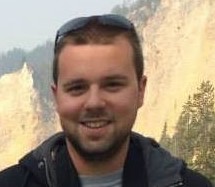
Eric Stephen '17
JD/PhD Student
Read MoreEric Stephen is currently a JD/PhD student jointly at Harvard University and Yale Law School. As a historian, his work explores the ways that Americans’ faith commitments have influenced religious liberty jurisprudence, how those legal precedents have in turn informed religious belief, and how this relationship has shifted throughout US history in response to significant social changes and political events.
In his dissertation as a PhD student in Religious Studies, Eric examines the ways language around "secularism" and the "secular" was used in American law and politics in the late 1800s and early 1900s, and the role that shifting understandings of these categories played in influencing the different visions of religious liberty that emerged in the twentieth century.
Prior to his JD/PhD, Eric received a Masters of Theological Studies from Harvard Divinity School, and also completed the BA/MA joint program at Wesleyan University, where he worked in part with Professor Justine Quijada studying indigenous religious revival moments in post-Soviet Siberia.
Eric was long interested in going into legal studies, but it was not until taking Religious Studies courses at Wesleyan that he came to recognize the importance of using a humanities-based approach in legal history. Whereas most legal historians tend to treat categories like “religion” and the “secular” as stagnant, universal categories, Eric tries to bring the work of scholars of religion—such as Talal Asad, Saba Mahmood, Tisa Wenger, and Tomoko Masuzawa—to bear on legal history with the goal of developing deeper understandings of the ways that law shapes how the category of “religion” is understood, embodied, and practiced in the United States.
It’s Eric’s hope that the theories, methods, and tools that he learned as a Religious Studies major at Wesleyan can help build a better body of scholarship and provide a more nuanced perspective of the role that religion plays in the current divides in American public life.
-
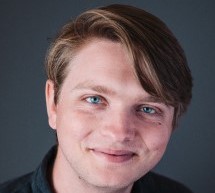
Lightning Jay '09
Ph.D. Candidate
Read MoreUPenn Graduate School of Education
Previously High School History Teacher and Teachers’ CoachLightning Jay is currently a Ph.D. candidate at the University of Pennsylvania’s Graduate School of Education where he studies teacher education and social studies education in the United States. His primary research revolves around supporting teachers in facilitating classroom discussions, teaching for historical thinking, and engaging in exploration of the role of race and power in history.
Previously, Jay spent seven years teaching in elementary, middle, and high schools in Brooklyn, NY and Minneapolis, MN. Jay was also a coach for other teachers and supported their professional development by providing feedback on lesson plans and classroom teaching, as well as meeting regularly one-on-one. This sort of mentorship has allowed Jay to build upon his own skills as a teacher while helping new teachers develop their own educational approaches.
Wesleyan’s Religion and Philosophy departments challenged Jay to think deeply about how culture, text, and mission are intertwined. This thinking informed his teaching as close attention to the narratives that comprise our lives is essential to teaching history, the ability to participate in textual argumentation is critical for academic success, and a sense of purpose is nearly a prerequisite for education. Religious studies has also helped him to “be conscious of [his] own perspective,” which is indispensable in working with a community that is not his own. Additionally, Jay has made sure to incorporate his knowledge of Buddhism, Hinduism, and other religions, which are often overlooked in high school curricula and provide new ways of looking at history.
Though he describes the post-college transition as “super confusing,” Jay soon found his way as a teacher. He explains, “I wanted to do something actionable and social justice oriented,” and teaching offered him an opportunity to work with a team of committed colleagues and make an immediate impact on students’ lives. As an academic Jay works to help other teachers find a similar path. -
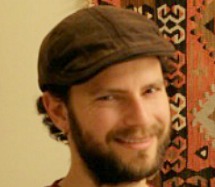
Zachary Gratz-Lazarus '06
Social Worker
Read MorePublic Defenders Office: Alameda County, CA
Master's in Social WorkZachary Gratz-Lazarus is a social worker in the public defender’s office in Alameda County, CA. He provides support for clients facing felony charges, and performs clinical assessments and court advocacy on their behalf. Often Gratz-Lazarus seeks alternatives to incarceration for his clients, who are predominantly young men of color. He explains, “My job is to build empathy wherever it is possible to do so.”
Gratz-Lazarus utilizes a broad range of skills in his professional life. Beyond strong writing and oratory abilities, Gratz-Lazarus must also communicate effectively and compassionately between clients, attorneys, sheriff deputies, and judges, while maintaining a sense of humor and a steady dedication to people and social good.
As an undergraduate engaged in peacebuilding activism for Israel and Palestine, interfaith dialogue, and a student forum on contemporary radical Jewish thought, Gratz-Lazarus’ life on campus intersected readily with his academic pursuits. As a member of the first class of Jewish Studies students, Gratz-Lazarus explored a wide breadth of courses in Judaism and Christianity. He explains that the Religion department provided him an array of opportunities for “personal change interwoven with the intellectual and analytical [project].”
Upon graduation, Gratz-Lazarus began working for Progressive Jewish Alliance (now Bend the Arc), organizing around economic and criminal justice first in Los Angeles and later San Francisco. While there, he decided to pursue an MSW, recognizing social work as a means of combining his skills in building one-on-one relationships with his commitment to working within a larger-scale system of change. After completing his graduate studies, Gratz-Lazarus worked briefly in a community mental health setting with juvenile clients on probation, and soon transitioned to public defender’s office where he is currently employed.
-
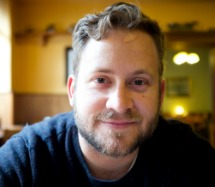
Scott Cunningham '00
Director, O, Miami
Read MoreCommunity poetry-based non-profit organization
Master of Fine ArtsScott Cunningham is the founder and director of O, Miami, a Miami-centric poetry non-profit that seeks to enrich local community through the creative deployment of poetry around the city. The organization runs writing workshops, publishes literary works at its new press, and hosts an annual poetry festival. Cunningham explains, “The ideal O, Miami project is something that takes the creative and imaginative capacities of people in Miami (since anyone can write a poem) and re-presents them so as to open our eyes to the city and the people around us.”
As director, Cunningham wears many hats. One recent morning, Cunningham visited a local prison complex to attend the graduation ceremony and poetry reading for inmates who had participated in a series of writing workshops. That afternoon, Cunningham and his co-workers met with an artist-journalist who has pitched his book idea to their press imprint, Jai-Alai Books.
Cunningham founded O, Miami in 2008, while in graduate school for his Master of Fine Arts in creative writing and poetry. It was there that he began organizing events to build community for local writers, out of which O, Miami emerged.
Before arriving at graduate school, Cunningham explored jobs in film, journalism, and teaching.
Noticing himself excited for days off just to get the chance to write, Cunningham eventually decided to pursue writing as a career.Cunningham sees his work in poetry and his undergraduate background in religious studies as intricately connected, and believes his artistic process has deeply benefited: “I find it of such value as a working artist to have a base of knowledge that’s completely outside of [art-making]... A lot of times, the technical know-how comes in the process of trying to do something. As a writer, not having an idea to express is a much bigger problem than not knowing how to express it.”
-
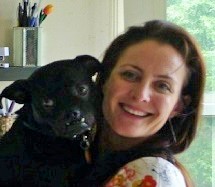
Antonia Townsend '93
Business Owner
Read MoreAntonia Townsend is the owner of Enclosed, a quickly growing online lingerie business. Her day-to-day work life is quite multi-faceted, from finance to advertising, business strategy, and writing. As she sees it, Townsend’s job requires her to “put [herself] in someone else’s shoes by thinking through the psychology of purchase-making.”
Prior to becoming a business owner, Townsend worked for a number of start-ups, but eventually wanted to start something of her own. She attended Columbia Business School for her MBA to gain the necessary tools.
Religious Studies at Wesleyan offered Townsend the critical thinking and writing skills to become an effective businesswoman. The department provided her a way of thinking that she has found readily applicable to the business world.
Townsend has reflected that her undergraduate thesis work (on spirit possession among slaves in Antebellum South) was great preparation for the working world, since it offered her an opportunity to focus on a long term and large-scope project that mirrors the way most jobs are structured.
Despite her profession in business, Antonia happily insists, “I will hire a Religious Studies student over an Economics or Business major any day of the week!”
-
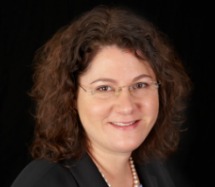
Gail Kahan '88
Attorney
Read MoreSolo Law Practice: wills, trusts, probate
JD, UCLA School of LawGail Kahan, is an attorney with a boutique solo law practice concentrating on wills, trusts, probate and trust administration. She provides support for clients who face imminent end-of-life decisions regarding their medical care and distribution of their property. Kahan explains, “After somebody has died, I ensure that their wishes are absolutely honored.” She deeply enjoys her work, finding fulfillment in building relationships with her clients and their families during a challenging and emotional time in their lives.
Kahan appreciates the intellectual puzzles of interpreting the tax and estate codes. She cites her studies in Religion at Wesleyan as having honed her strong writing and textual interpretation skills.
As an undergraduate, Kahan sought out classes that required long-form papers over exams. She also chose classes that required vigorous reading assignments using first person and original sources over textbooks. This course of study trained her to coherently and logically communicate using the written word and to capably and critically analyze challenging textual sources. Kahan fondly recalls a student-led seminar in which she and five other undergraduate women participated. The students were focused on their intellectual community and Kahan remembers that no one ever dared skip a reading!
In search of a meaningful and well-compensated profession, Kahan returned to law school at UCLA. Upon passing the bar, Kahan worked for several years as a prosecutor for the City of Los Angeles. She found value in defending the rights of the community body and upholding quality of life standards for her city and neighbors.
Ultimately, Kahan left public law in order to open her own private practice, excited by the prospects of self-employment and fulfilling interpersonal relationships with her clients. She enjoys her professional life and is grateful for the skills and education she received at Wesleyan.
-
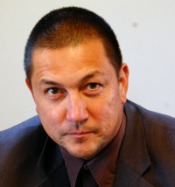
Mike Sealander '86
Architect
Read MoreSealander Architects
Small firm in Maine; Co-owns with wifeMike Sealander is the founder and co-owner of Sealander Architects, a small architecture firm that he runs with his wife in Maine. Their firm designs for a wide variety of clientele, including educational institutions from K-12 to college, residential buildings, religious institutions, and community centers.
After spending several summers during college working for a construction company, Sealander was ultimately encouraged by his boss there, who also happened to be an architect, to pursue architecture upon graduation.
In his work, Sealander confronts design questions such as how to imbue a physical space with abstract terms like “warmth” or “inviting. “ He asks, “How can a building embrace or cradle its landscape? The answer is that you have to treat each project lovingly. This is the proper way to go about design projects, since they are for human beings.”
Sealander cites a single section from Heidegger’s Being and Time as the most influential thing he encountered as a Religion major in college. The story, he explains, is about a Greek mythological creature named Care. Describes Sealander, “The myth demonstrates that humans understand the world by caring; this is distinctly different from Cartesian understanding in which one’s grasp of the world is through subject and object, observers and observed.” Sealander understands the characteristic of caring as integral to his design process, since “as it turns out, buildings have personalities like their owners... The object is to produce places that are in keeping with their ownership. I think that this is something that became clear to me, having been a formal student of continental philosophy. In that way, [my studies in the Religion department] were a good preface to graduate work.”
-
Michael Bailit '84
Health Care Consultant
Read MoreMichael Bailit is the founder and president of Bailit Health, a health care consulting firm. The company primarily advises state governments on the design and management of health care programs, including health care payment and delivery strategies, for low-income citizens. On any given day, Bailit communicates with multiple state governments, and periodically visits state agencies to facilitate multi-stakeholder efforts to effect meaningful systems change.
As a Religion major, Bailit loved studying with engaging faculty and recalls warm relationships with many professors, even playing softball on a team with Professor Cameron! As an undergraduate, Bailit was inspired to pursue a career path that combined his skillsets with his social consciousness. Discovering an overlap between his abilities in management and organization, and his interest in health care and a value-driven sense of mission, Bailit decided to pursue health care management.
After college, Bailit attended business school for his Masters in Business from Northwestern University, as one of only two undergraduate Religion majors in his class. He sees his strong writing, analytical, and communication skills as having grown directly from his undergraduate degree.
The practice of religion continues to be a part of Bailit’s life, and he has served in various roles of governance, including president, at his local synagogue.
Bailit reflects, “My work with states to improve health care has turned out to be something I never even imagined existed as a career opportunity. As an undergraduate, I think it is nearly impossible to imagine all the different employment options that exist. In fact, there really are infinite possibilities.”
-
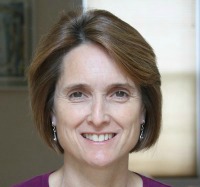
Karen Zilberstein '84
Psychotherapist
Read MoreProfessor, Smith College School of Social Work
MSWKaren Zilberstein is a psychotherapist and adjunct professor at the Smith College School for Social Work. She has found a niche clientele base, providing therapy primarily for children with histories of trauma, and previously-fostered children who have been adopted into families.
As a therapist, Zilberstein engages with children and families from many ethnic, cultural, and religious backgrounds. She explains, “[Like religions,] parenting is full of belief systems. A lot of people forget it’s so culturally specific. We [as social workers] have to be open to different perspectives.” Zilberstein cites her ability to attentively navigate a wide variety of social identities and value systems as deriving from her religious studies at Wesleyan.
Zilberstein has always enjoyed working with children, and so upon graduation accepted a position at a summer camp supporting children with special needs, and later as a camp director. She recalls that, in moving between many jobs in early life, Zilberstein was able to learn more deeply about herself and her personal working style: “I loved some jobs and greatly disliked others,” she explains, “but that’s not a bad thing.”
Eventually deciding to attend graduate school for social work, Zilberstein found herself with some catching up to do, in order to meet the level of the psychology majors in her program. However, the transition was ultimately surmountable and, she explains, “I’m really grateful for the broader [liberal arts] training. Today, I can tell immediately who [of my social work students] has a liberal arts degree by the way that they can write analytically and think critically.”
-
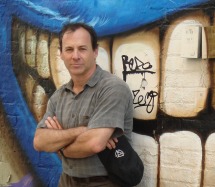
David Frankfurter '83
Professor of Religion
Read MoreProfessor David Frankfurter has always had a deep enthusiasm for religion. Even before college, he recalls, he studied Joseph Campbell on myth, and Carl Jung on the psychology of religion. So when Professor Frankfurter arrived at the Religion Department as a freshman, he was already open to pursuing the academic study of religion.
Midway in his college career, Frankfurter remembers, he took a course with Ron Cameron on early Christian gospel materials, and this grabbed his interest, especially their apocalyptic themes. He proceeded to work independently with Professor Cameron on early Christian apocalyptic literature. Eventually Frankfurter took his interests to an honors thesis on apocalyptic themes in the Dead Sea Scrolls called “A Battle Plan for Armageddon,” which won High Honors from the department and University Honors as well.
As for his undergrad experience, Professor Frankfurter relates, “One of the great things [about Wesleyan’s Religion Department] is that it is so broad and yet so rigorous. You have to focus a lot, but you come out with an understanding of the field of religion that most of my [academic] colleagues don’t have.” Whereas other university departments emphasize training in texts or historical contexts, Professor Frankfurter recognizes the value of the Wesleyan Religion Department’s focus on theoretical approaches that allow for a more “comparative slant.”
These days, Professor Frankfurter is the chair of the Religion Department at Boston University. Alongside his administrative responsibilities, Professor Frankfurter teaches “Theoretical Approaches to the Study of Religion,” to provide theoretical foundations of the field, as well as a number of courses on early Christianity. One class he teaches is on “Saints and their Cults,” about hagiography, the social construction of sainthood, and comparative saint traditions.
Professor Frankfurter jokes, “In some ways I’m a bad example [for this alumni project]. You certainly don’t have to go into academics or the ministry when you major in religion. But yet that’s what I did!”
-
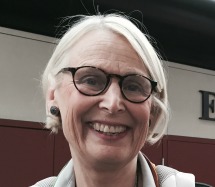
Nancy Fuchs Kreimer '73
Recontructionist Rabbi
Read MoreProfessor, Reconstructionist Rabbinical College
Dept. of Multifaith StudiesRabbi Nancy Fuchs Kreimer is a Reconstructionist rabbi and professor at the Reconstructionist Rabbinical College in Philadelphia, where she is the head of the Department of Multifaith Studies. Both her rabbinic and academic studies center on interfaith activism, primarily between Jews, Muslims, and Christians.
Throughout her time at Wesleyan, Fuchs Kreimer knew that she wanted to become a Reconstructionist rabbi. When she began her studies at the Reconstructionist Rabbinical College (RRC), it had ordained only 5 women rabbis and upon her ordination, she was one of only 20 women rabbis in the entire country. Rabbi Fuchs Kreimer has helped ushered in the first generation of women rabbis.
Simultaneous to her rabbinic studies, Rabbi Fuchs Kreimer also pursued a PhD in Religion at Temple University. Her dissertation, on 20th-century Jewish thinkers writing about the Apostle Paul, enabled her to explore contemporary Jewish thought in tandem with interfaith themes. After completing her dissertation, Rabbi Fuchs Kreimer chose to dive into what she calls the “in-the-world” work of an activist rabbi.
Throughout her long career, Rabbi Fuchs Kreimer has filled many roles in the Jewish and multifaith world: she has run an adult center for Adult Jewish Studies, served as the rabbi in residence at the Philadelphia Jewish Family and Children’s Service, and held various formal and volunteer positions at number of interfaith organizations including the Sisterhood of Salaam/Shalom, the Interfaith Center of Philadelphia, Clergy Beyond Borders, and the multifaith arm of the Islamic Society of North America, Shoulder to Shoulder.
At RRC, where she has been on the faculty since 1990, Rabbi Fuchs Kreimer teaches contemporary Jewish thought and multifaith studies. This semester she is co-teaching a course on “Cultivating Character in Judaism, Christianity, and Islam” with two Christian and Muslim colleagues. Currently, Rabbi Fuchs Kreimer is deeply involved in the multifaith movement to confront recent events of Islamophobia in America, and co-organizes faith-based educational spaces on allyship and demonstrations of solidarity with Muslim communities.










